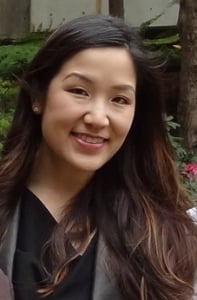Tiffany Chang, MD is a Developmental Therapeutic Scholar at UCSF's Center of Excellence. Under the mentorship of Dr. Katherine Matthay, she is training to become a leader in the field of developmental therapeutics in high risk childhood leukemias. She answered some questions about her work:

How long does it take to study a new therapeutic intervention?
It takes an average of 12 years (and millions of dollars) for a drug to move from the laboratory bench to the patient’s bedside. Furthermore, only 10% of the drugs that begin preclinical testing ever make it to human testing, and even fewer make it all the way to FDA approval.
How many studies do you run concurrently for childhood cancer?
We currently have 30 Phase I/II clinical trials open at UCSF treating children with a variety of cancers including leukemia, brain tumors, neuroblastoma and sarcomas.
What obstacles/challenges do you face in bringing new treatments to children with cancer?
I think it is a truly exciting time in pediatric cancer research. New drugs are being discovered at a remarkable pace, but just when we are most poised to capitalize on all the prior years of investment, the current funding climate has placed potential life-saving discoveries in jeopardy....the cost of developing a new drug is high, and childhood cancer as a whole, though significant, is too small a market to attract the attention of private industry. Furthermore, industry-sponsored studies of new agents in children typically lag far behind studies in adults. Only 4% of the National Cancer Institute’s budget is dedicated to childhood cancer. As such, foundations like ALSF play a critical role in bridging these funding gaps so that promising new treatments make it to the children who need them.
April 1, 2015

